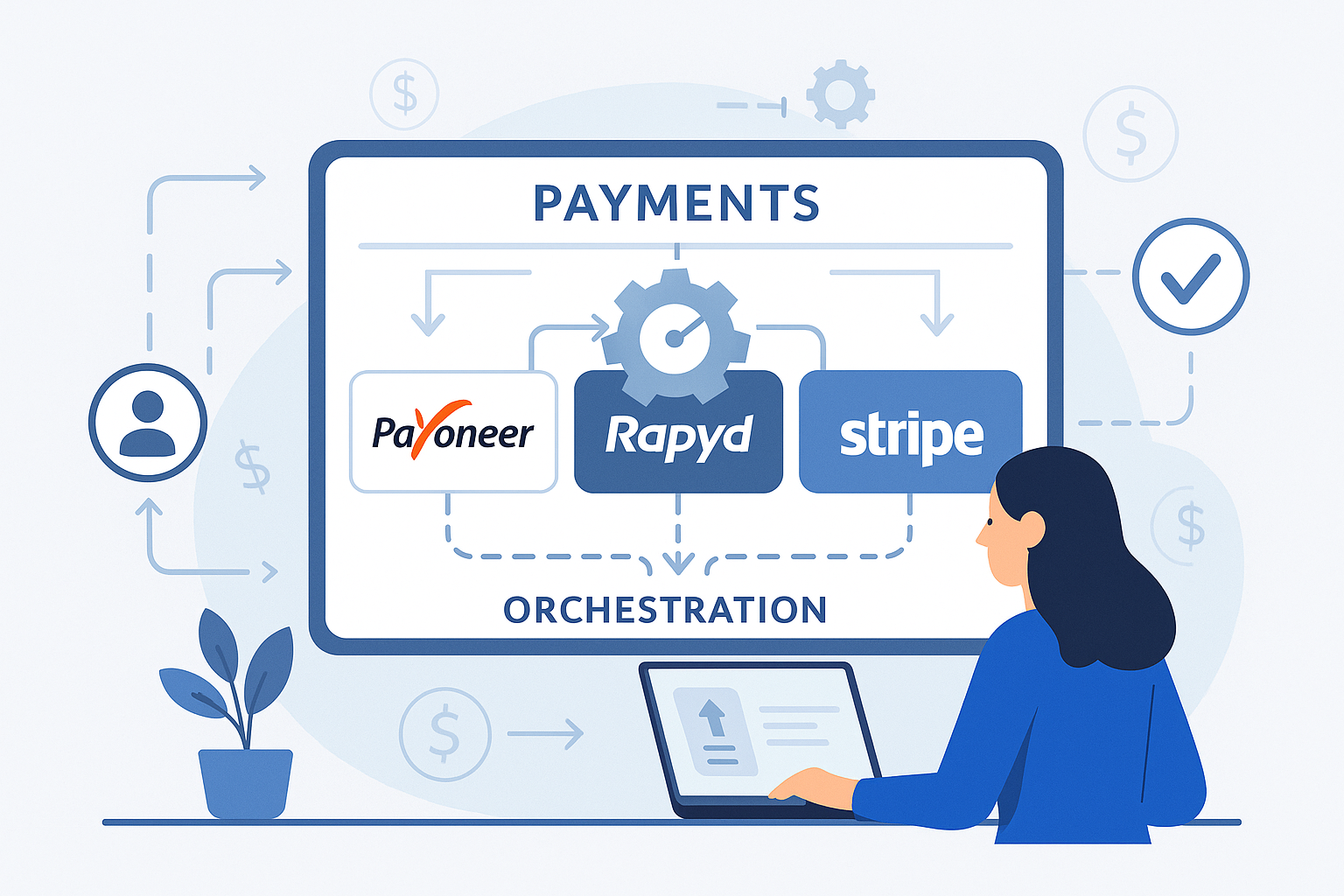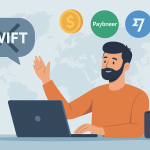What Is a Payment Orchestration Platform?
A payment orchestration platform (POP) is a software layer that connects multiple payment service providers (PSPs), gateways, and banking options into one centralized system. It routes payments dynamically based on speed, cost, location, or currency—improving efficiency and success rates.
Why This Matters in 2025
With the growth of cross-border freelancing and remote teams, handling multiple currencies, providers, and payout rules can be overwhelming. Payment orchestration automates these flows and integrates seamlessly with accounting tools, invoicing systems, and financial dashboards.
Key Benefits for Freelancers and Businesses
- Route payments through the cheapest or fastest providers
- Automate multi-currency settlement and reconciliation
- Reduce transaction failures and abandoned payouts
- Gain insights from centralized reporting and analytics
Top Payment Orchestration Platforms in 2025
1. Payoneer + API Integration
Payoneer offers advanced payment infrastructure for platforms and SaaS providers. Through APIs, businesses can automate onboarding, payouts, and compliance checks—all while maintaining control from a unified dashboard.
2. Rapyd
Rapyd provides a powerful orchestration layer that connects local and global payment methods in 100+ countries. It’s ideal for businesses scaling freelance payments worldwide.
3. Paddle and Stripe Connect
These platforms focus on SaaS and digital product businesses but also enable orchestrated payments to remote workers and contractors through multiple rails.
Should Freelancers Care?
If you manage subcontractors, virtual assistants, or run a micro-agency, payment orchestration can save you time, reduce errors, and help you scale globally without needing to build complex infrastructure.
Conclusion
Payment orchestration is no longer just for enterprises. In 2025, freelancers and small businesses can tap into these tools to optimize payments, improve cash flow, and serve clients around the globe more effectively. Consider starting with a platform like Payoneer if you’re ready to upgrade your payout stack.
Disclosure: This article contains affiliate links. If you sign up through our Payoneer link, we may earn a commission at no extra cost to you.





